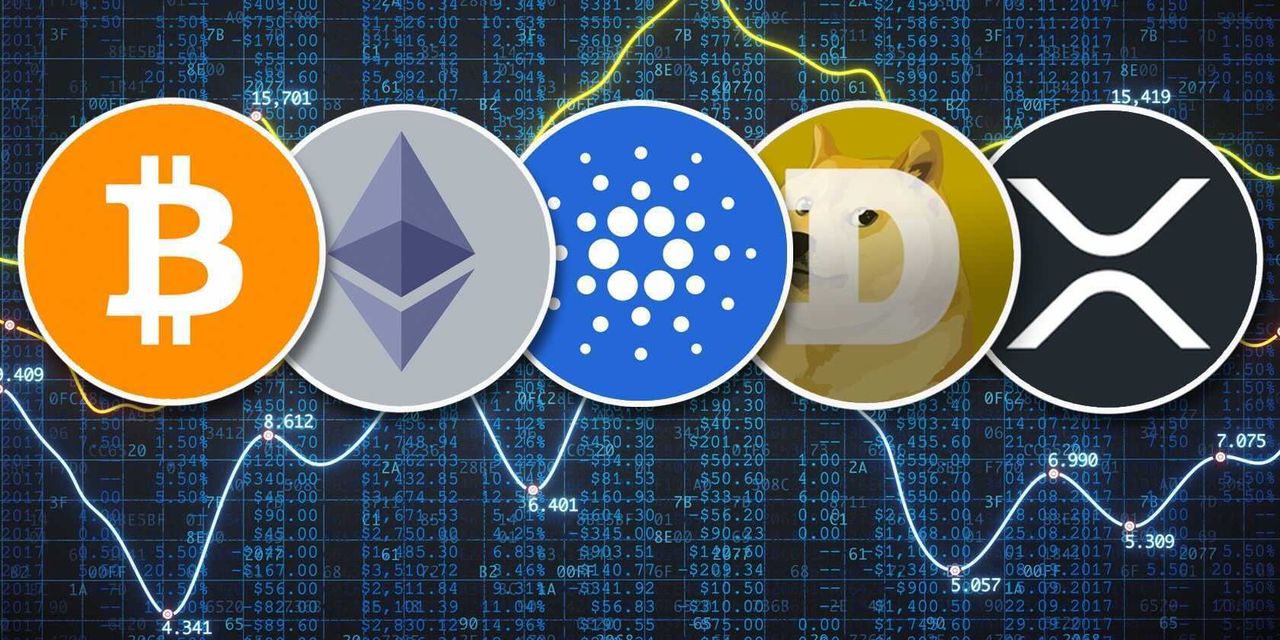Hi! Welcome back to Distributed Ledger. This is Frances Yue, reporter at MarketWatch.
Crypto bulls are excited that a federal judge on Thursday ruled XRP, a token associated with Ripple Labs, isn’t a security when sold to the public in a programmatic on digital-asset exchanges.
XRP rallied almost 70% Thursday to around $0.78, representing its highest level since around December of 2021, at last check, based on CoinDesk data. Other major cryptocurrencies also jumped.
U.S. District Judge Analisa Torres said Ripple’s direct sales to sophisticated institutional investors would, however, qualify as an unregistered sale of investment contracts, in violation of federal law, representing a partial win for those who have advocated that XRP isn’t a security.
“We are pleased that the court found that XRP tokens were offered and sold by Ripple as investment contracts in violation of the securities laws in certain circumstances,” an spokesperson at the Securities and Exchange Commission wrote to MarketWatch.
While the court’s decision on XRP is based on facts of the particular case, it will likely provide support for other crypto companies that are fighting with the SEC over whether the agency has jurisdiction over their products, according to analysts.
I caught up with industry participants on what the ruling about XRP means for the digital asset space.
Find me on Twitter at @FrancesYue_ to share any thoughts on crypto or this newsletter.
Securities or not? That’s a question
Whether crypto are “securities” is a central basis for the regulatory strategy of the SEC. Securities sold to the public must be registered with the SEC, which requires providing investors with regular financial statements and disclosures about business and potential risks.
Read: SEC’s Gensler slams digital-asset industry for ‘ignoring the law’ as crypto crackdown continues
Gary Gensler, SEC chairman, has repeatedly claimed that most crypto are securities and therefore should fall within the remit of his agency. Bitcoin, the original and largest crypto by size, is the only digital asset that the chairman has described as a commodity and not a security.
Also see: What are unregistered securities? Are all cryptos, like bitcoin and ether, unregistered securities?
Most recently, the SEC sued digital-asset exchanges Binance and Coinbase
COIN,
Global Inc. Among other charges, the SEC accused both exchanges of selling to the public crypto securities that had not been registered with the agency by issuers.
In lawsuits, the SEC named dozens of crypto, such as Solana
SOLUSD,
Cardano
ADAUSD,
Polygon
MATICUSD,
Filecoin
FILUSD,
Algorand
ALGOUSD,
and Axie Infinity as securities.
Importance of the Ripple case
The Ripple lawsuit can be traced back to 2020, when the SEC sued the company and two executives for raising over $1.3 billion through selling XRP, alleging that they violated security laws.
“It’s been clear since this case was filed that it would have implications across the entire industry,” said Sheila Warren, chief executive at Crypto Council for Innovation, a crypto advocacy group.
In the court filing, Judge Torres wrote that “XRP, as a digital token, is not in and of itself a ‘contract, transaction[,] or scheme’ that embodies the Howey requirements of an investment contract. Rather, the Court examines the totality of circumstances surrounding Defendants’ different transactions and schemes involving the sale and distribution of XRP.”
The Howey Test refers to a U.S. Supreme Court case for determining whether a transaction qualifies as an “investment contract,” and thus will be considered a security.
Judge Torres’s ruling “fundamentally undercuts the SEC’s argument that it has the authority over these underlying assets and that regulatory clarity already exists,” Warren wrote to MarketWatch.
“This is certainly a call to action to Congress and will light a fire under current proposals, Warren said, adding that she views the ruling as a “significant thaw in the regulatory permafrost that the U.S. has been stuck in.”
“As we’ve seen from today’s action, markets are interpreting the XRP ruling as a sign that top altcoins could pass regulatory muster,” said Michael Safai, managing partner at Dexterity Capital. Altcoins typically refer to cryptocurrencies other than bitcoin.
Still, some of the price jump likely has been propelled by speculators, who “see this as an opportunity to buy undervalued assets with upside,” Safai wrote in emailed comments.
“The rest of the market is feeling positive, yet cautious. We’re a long way out from getting regulatory clarity, but this is a sign that we will get some meaningful resolution in the near future,” noted Safai.
Townsend Lansing, CoinShares’ head of product, echoed the point about continued regulatory uncertainty. The court ruling on XPR and Ripple indicates the “ongoing and evolving nature of the regulation of cryptocurrencies,” Lansing said.
Reuters reported Thursday that an appeal of the ruling could be possible.
Crypto in a snap
Bitcoin
BTCUSD,
gained 0.6% in the past seven days and was trading at around $31,137 on Thursday, according to CoinDesk data. Ether
ETHUSD,
rose 1.9% during the same period to around $1,976.
Must-reads
Read the full article here





